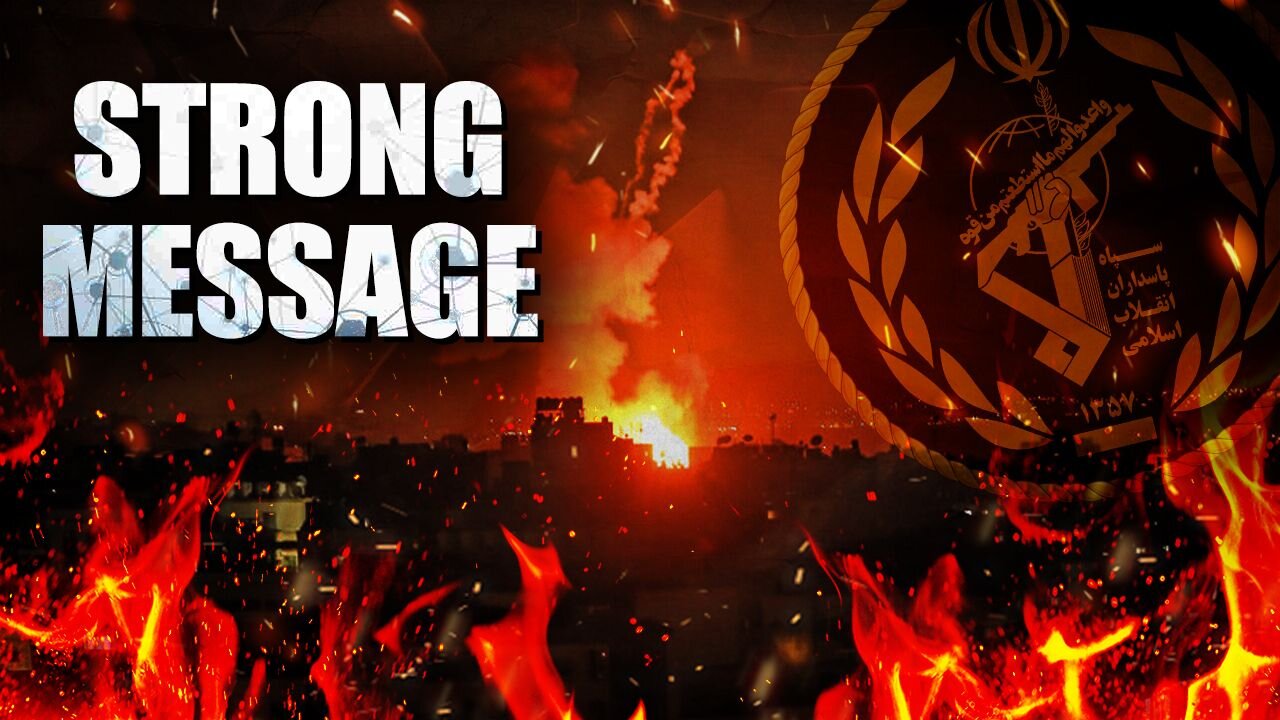Premium Only Content

Iran Sends Strong Message To Israel With Missiles And Drones
Iran has responded to the April 1 Israeli attack on its embassy in the Syrian capital, Damascus, by launching hundreds of missiles and drones at military sites in Israel over the night of April 13 and 14 in a clear message of deterrence.
The Iranian attack, codenamed “Operation Honest Promise,” was carried out by the Islamic Revolutionary Guard Corps (IRGC), which lost several of its members in the Damascus bombing, with the approval of the Supreme National Security Council and under the supervision of the General Staff of the Armed Forces.
The IRGC launched more than 300 projectiles at Israel, according to the Israeli Defense Forces (IDF), including 170 drones, 30 cruise missiles and 120 ballistic missiles.
During the attack, Hezbollah fired a salvo of rockets at the Israeli-occupied Syrian Golan Heights. There were also reports of the Houthis in Yemen launching several drones at Israel.
The projectiles were engaged not only by Israel’s multi-layered air defense network, but also by United States Central Command forces as well as fighter jets from the United Kingdom, France and even Jordan.
The IDF alleged that 99% of all incoming projectiles were intercepted. It said 170 drones and 30 cruise missiles were downed outside of the country’s borders by the Israeli Air Force and its allies. However, video footage showing failed interceptions and large blasts over Israel said otherwise.
Late on April 14, it was revealed that five ballistic missiles had hit the Nevatim Air Base in southern Israel, damaging a C-130 transport aircraft, a runway and a storage facility. Four other ballistic missiles hit the nearby Negev Air Base.
And while the IDF claimed that all drones and cruise missiles were intercepted outside Israel, it was revealed that at least one drone struck Mount Hermon in the Golan Heights, close to a key surveillance base.
Following the attack, Israel’s top officials, including Prime Minister Benjamin Netanyahu and Defense Minister Yoav Gallant, vowed to respond. However, Tehran warned that it will strike back, but with full force.
While the scale of the Iranian attack appeared to be large, it was in fact very limited considering the country’s vast offensive capabilities.
Iranian President Ebrahim Raisi openly said on April 17 that the attack was “a limited measure”. Iranian Intelligence Minister, Esmaeil Khatib, went a step further on the same day by revealing that the attack was just the beginning of “a new strategy”.
The Iranian attack was clearly more of a message of deterrence. Israel’s failure to understand that this is not the limit of what Iran’s capabilities could lead to a dangerous escalation in the Middle East. Tehran will not tolerate any strike on its territory and could even respond to any attacks on its allies in Lebanon, Syria, Iraq and Yemen.
Mirrored - South Front
-
 59:44
59:44
PMG
1 day ago $3.32 earned"BETRAYAL - Johnson's New Spending Bill EXPANDS COVID Plandemic Powers"
43.9K14 -
 6:48:50
6:48:50
Akademiks
16 hours agoKendrick Lamar and SZA disses Drake and BIG AK? HOLD UP! Diddy, Durk, JayZ update. Travis Hunter RUN
172K28 -
 11:45:14
11:45:14
Right Side Broadcasting Network
9 days agoLIVE REPLAY: TPUSA's America Fest Conference: Day Three - 12/21/24
350K28 -
 12:19
12:19
Tundra Tactical
17 hours ago $13.10 earnedDaniel Penny Beats Charges in NYC Subway Killing
72.1K13 -
 29:53
29:53
MYLUNCHBREAK CHANNEL PAGE
1 day agoUnder The Necropolis - Pt 1
158K52 -
 2:00:10
2:00:10
Bare Knuckle Fighting Championship
3 days agoCountdown to BKFC on DAZN HOLLYWOOD & FREE LIVE FIGHTS!
59.7K3 -
 2:53:01
2:53:01
Jewels Jones Live ®
1 day agoA MAGA-NIFICENT YEAR | A Political Rendezvous - Ep. 103
153K39 -
 29:54
29:54
Michael Franzese
20 hours agoCan Trump accomplish everything he promised? Piers Morgan Article Breakdown
138K81 -
 2:08:19
2:08:19
Tactical Advisor
1 day agoThe Vault Room Podcast 006 | Farwell 2024 New Plans for 2025
200K11 -
 34:12
34:12
inspirePlay
1 day ago $6.24 earned🏆 The Grid Championship 2024 – Cass Meyer vs. Kelly Rudney | Epic Battle for Long Drive Glory!
96.7K8